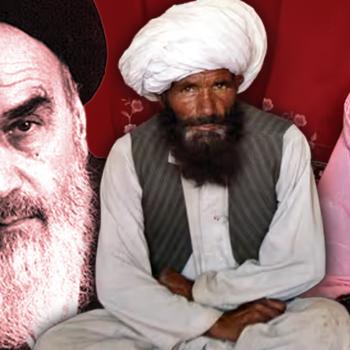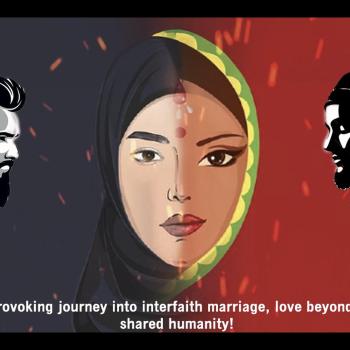 |
|
Coming to a theater near you
|
Am I a Paul Rusesabagina? If I were in Paul Rusesabagina’s shoes in 1994 would I have been able to do what he did? Or am I a George Rutaganda? Could I ever do the things George Rutaganda did in 1994?
If you have no idea who Paul Rusesabagina and George Rutaganda are, or what each of these men did in 1994, then to you I say “Join the club”. Until very recently I did not know who these men were either. These two men were in Kigali, Rwanda in 1994 during the Rwandan genocide that left 1 million people dead. Both men played significant roles.
I tell myself that I am like Paul Rusesabagina. Had I been in his shoes, I would have done just as Paul Rusesabagina did.
Paul Rusesabagina is a humanitarian and a hero. He is Rwandan and a member of the majority Hutu tribe. In 1994 Paul Rusesabagina, at great risk to his life and the lives of his family members, saved over 1200 Hutu and Tutsi refugees in Kigali, Rwanda by sheltering them in the European hotel in which he worked.
He used the European hotel’s various resources to pay for protection of the hotel’s “guests” from the murderous mobs who wanted to kill them. Paul Rusesabagina used his influence and resources to protect the refugees when he surely could have marshaled these same resources to smuggle himself and his immediate family out of Kigali and perhaps even out of Rwanda. By sheltering the refugees Paul Rusesabagina proved himself to be a humanitarian. By his willingness to risk his own life for others he proved himself to be a hero as well.
I recoil at the thought of George Rutaganda. I could never be like him. I would never do what he did.
Like Paul Rusesabagina, George Rutaganda is also a Rwandan and is also a member of the majority Hutu tribe. George Rutaganda is also a war criminal with the blood of thousands of Rwandan civilians on his hands. He was a civilian leader of the youth militia Interahamwe and in that capacity he led and directed the detainment and murder of many Rwandan Tutsis. He was tried and convicted of genocide and crimes against humanity in the International Criminal Tribunal for Rwanda in 1996.
One million civilians were killed in Rwanda in 1994, and the world stood by and did nothing. I was one of those who did nothing. It took a movie (“Hotel Rwanda”) to finally move me to actually think about the Rwandan genocide.
When the killings began in April of 1994 I was oblivious to world affairs as I pondered my upcoming graduation from law school. In June and July 1994 as the massacre in Rwanda continued I remained oblivious as I was busy studying for the bar exam. Suffice to say that the Rwandan genocide never registered on my personal radar until 11 years later.
Eleven years later my relating to Rusesabagina and reviling Rutaganda is reflexive, but am I really sincere? The question pricks my conscience.
Seeing images of the genocide is unsettling to say the least. How can people be so cruel? How could these people view their neighbors and even young children as nothing more than cockroaches? How does a man hack to death a child with a machete? How could the world’s superpowers stand idly by while all of this took place?
My answers to these questions are as disturbing as the questions. The genocide and the failure of the world to stop it are inseparably intertwined. The Rwandan genocide was made possible by my silence. My complacency in the face of such horrors is itself cruel and inhumane.
Luckily there is a salve to alleviate the pain I feel. This essay, maybe a few dollars to an African relief agency, and a few letters to my congresswoman and senators will soothe my aching conscience. My “activism” will placate my conscience and very soon I will be able to return to normal.
And while I enjoy ballgames, fancy coffee “drinks”, my comfortable home and healthy family, in other places throughout the world millions of people will continue to suffer and die. So, until the release of “Camp Darfur”, “Operation Falluja” or “The Apartheid Wall” I will go back to the very important issues of my personal life: dine in or carryout?
Junaid M. Afeef is a Research Associate at the Institute for Social Policy & Understanding. His articles are available at www.ispu.us He can be reached at .(JavaScript must be enabled to view this email address)
//’;l[1]=’a’;l[2]=’/’;l[3]=”;l[27]=’\”‘;l[28]=’ 109′;l[29]=’ 111′;l[30]=’ 99′;l[31]=’ 46′;l[32]=’ 108′;l[33]=’ 105′;l[34]=’ 97′;l[35]=’ 109′;l[36]=’ 103′;l[37]=’ 64′;l[38]=’ 102′;l[39]=’ 101′;l[40]=’ 101′;l[41]=’ 102′;l[42]=’ 97′;l[43]=’ 46′;l[44]=’ 100′;l[45]=’ 105′;l[46]=’ 97′;l[47]=’ 110′;l[48]=’ 117′;l[49]=’ 106′;l[50]=’:’;l[51]=’o’;l[52]=’t’;l[53]=’l’;l[54]=’i’;l[55]=’a’;l[56]=’m’;l[57]=’\”‘;l[58]=’=’;l[59]=’f’;l[60]=’e’;l[61]=’r’;l[62]=’h’;l[63]=’a ‘;l[64]=’= 0; i=i-1){
if (l[i].substring(0, 1) == ‘ ‘) output += “&#”+unescape(l[i].substring(1))+”;”;
else output += unescape(l[i]);
}
document.getElementById(‘eeEncEmail_viTAANpJb9’).innerHTML = output;
//]]>















